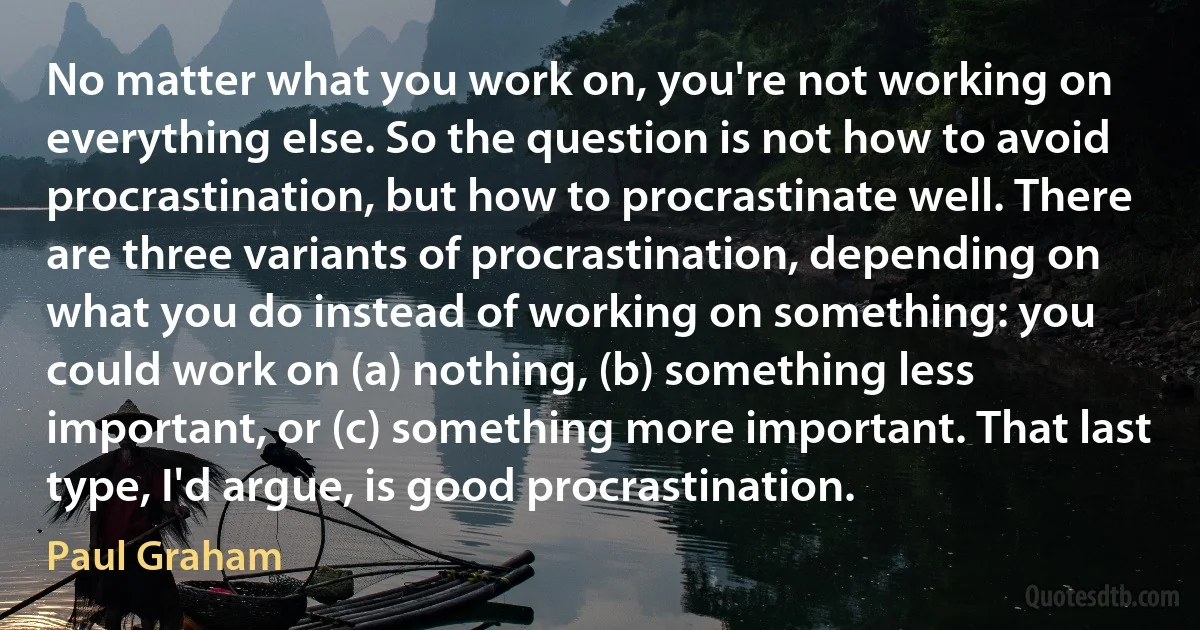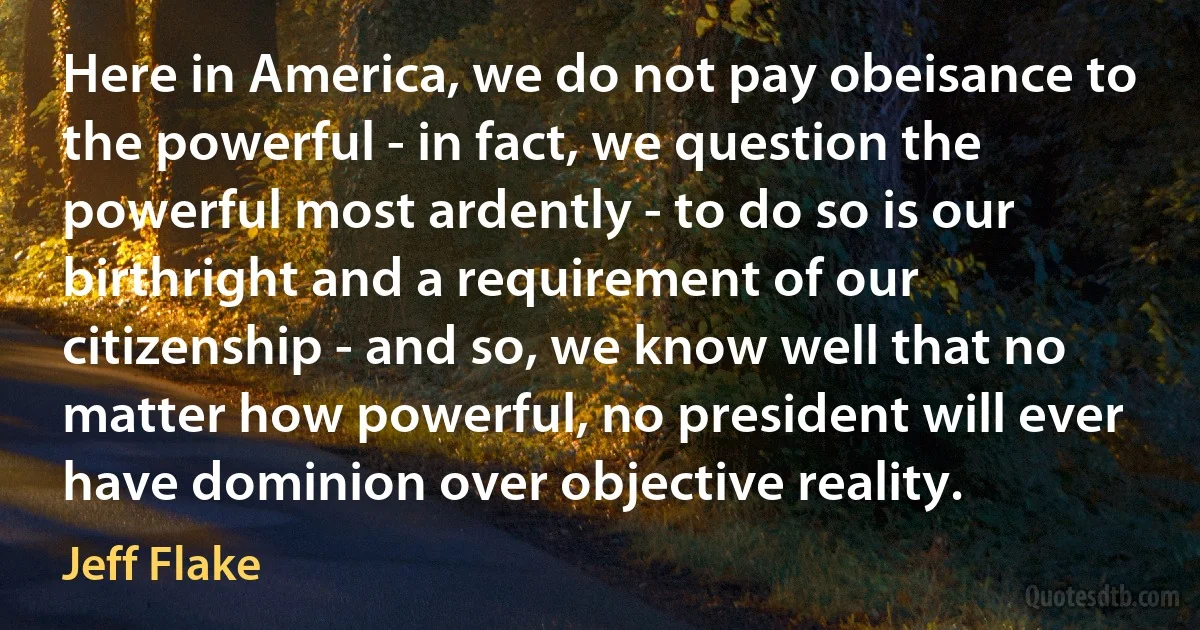Question Quotes - page 97
Although I firmly believe that there is no such thing as a stupid question, there can indeed be stupid answers. 42 is an example. Not only is this a poor ripoff of Doug Adams' Hitchhiker's Guide, but it isn't even a prime number. Everyone surely knows that numerical answers to profound questions are always prime.

Donald Norman
The meetings with Mexican officials were planned before the election, but they took on even greater significance after Trump's win. But even before the election, it was obvious that my party had taken a sharp turn away from the conservative principles that have defined it for nearly a century and that I have tried to uphold for my entire life. And the animating question of how this had happened to my party already seemed to be a profound problem for our democracy, and one badly in need of a solution. I write this book because we as conservatives - and conservatism itself - are in crisis.

Jeff Flake
For instance, if you have by a lie hindered a man who is even now planning a murder, you are legally responsible for all the consequences. But if you have strictly adhered to the truth, public justice can find no fault with you, be the unforeseen consequence what it may. It is possible that whilst you have honestly answered Yes to the murderer's question, whether his intended victim is in the house, the latter may have gone out unobserved, and so not have come in the way of the murderer, and the deed therefore have not been done; whereas, if you lied and said he was not in the house, and he had really gone out (though unknown to you) so that the murderer met him as he went, and executed his purpose on him, then you might with justice be accused as the cause of his death. For, if you had spoken the truth as well as you knew it, perhaps the murderer while seeking for his enemy in the house might have been caught by neighbours coming up and the deed been prevented.

Immanuel Kant
The question of the principle of the form of the intelligible world turns, therefore, upon making apparent in what manner it is possible for several substances to be in mutual commerce, and for this reason to pertain to the same whole, which is called world. We do not here consider the world, let it be understood, as to matter, that is, as to the nature of the substances of which it consists, whether they be material or immaterial, but as to form, that is to say, how among several things taken separately a connection, and among them all, totality can have place.

Immanuel Kant
Let us bring the question to the test of experience and fact; and ask ourselves, considering our nature in its entire extent, what light we derive from a sustained and comprehensive view of its component parts, which may enable us to assert with certainty that we do or do not live after death.

Percy Bysshe Shelley
In 1821, Major Stephen H. Long made an expedition to the area now known as Weld County and declared the land was not fit for human prosperity. Almost two centuries later it is without question that Major Long did not have the vision or the admiration for this great place as those of Weld County have today.

Jared Polis



